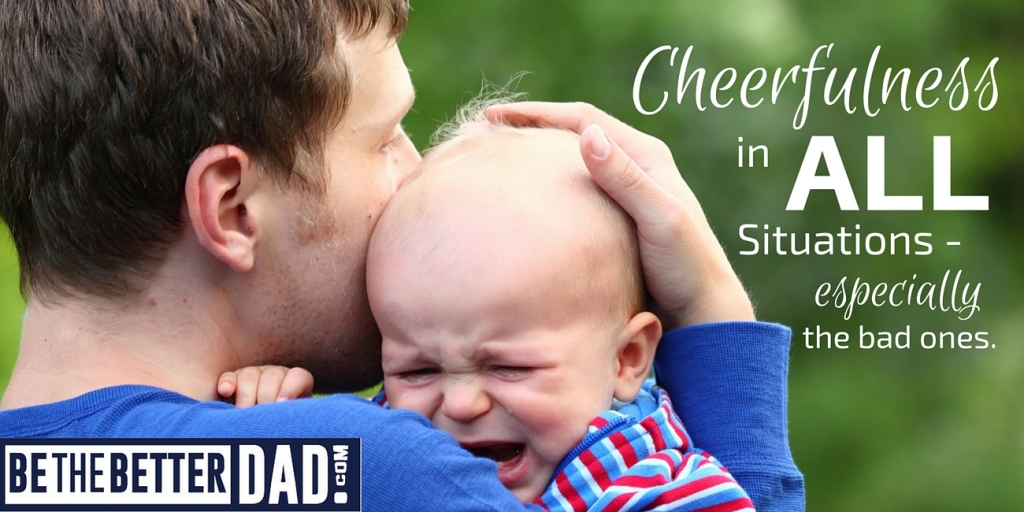Bedtime was a catastrophe.
Both of my sons were crying. My wife had spent most of the day sick and vomiting, and she was still trying to console our screaming boys. I fell into bed, exhausted, and the last thing I wanted to hear was a crash coming from the bathroom.
My daughter is the oldest and (I hoped) the most likely child to be capable of going into the bathroom alone to get her toothbrush. In this perfect moment of breakdown, she knocked over the ceramic cup that held our toothpaste, and it shattered on the bathroom floor.
In the midst of all this chaos, I asked myself the only important question that mattered:
“How would the better dad handle this?”
Asking this question was automatic. I’ve conditioned myself to ask this question whenever times are tough, because in the heat of the moment, I can make terrible decisions.
So I didn’t handle it the way I wanted. Instead of reacting, I paused to asses how a better dad than me would handle this situation, and then I did it that way.
What I Wanted To Do: Hurl myself out of bed, screaming loudly, “Get into bed right now!” Then I would go and grab the broom from across the house, stomping and cursing all the way.
What The Better Dad Would Do: Get up calmly, tell my daughter it was okay, and I would clean everything up. Move slowly, speak quietly, and reduce the chaos, instead of adding to it.
Playing the part of the better dad doesn’t come automatically to me, but if I pause for the right moment, I can convince myself to play that part for a little while, no matter how badly I feel.
When Parents Are Tired And Grumpy At Bedtime, The Kids Are Feeling Worse
At the end of the day, children fall apart. They are tired, cranky, loud, and completely irrational.
And What About You? If you are tired, cranky, loud and irrational at the end of the night – how much more difficult can you make it for everyone else?
You have the power to escalate a bad situation into a horrible one.

Wielding the power of a father cuts both ways. The better dad can use his mighty power for good, and help children channel their breakdowns. The tired and cranky father, the one who makes bad decisions, can turn a difficult situation into lifelong psychological scars.
Think about it: How many of your most damaging childhood memories happened when your parents were tired or stressed?
When you are tired or stressed, take extra care, for there be dragons.
Responding Instead Of Reacting
When your emotional reserves are depleted, your automatic reactions are guided by your discomforts. Attacking these discomforts is a common reaction, especially when things are happening all around you to add to your discomfort.
Instead of reacting, the Better Dad can respond to the situation, in a way that serves his family instead of harms them.
It’s not easy, but with one deep breath, it can be done.
“The main thing to learn is mindfulness and the pause,” says Leo Babauta of ZenHabits.net. “Mindfulness means watching ourselves when something happens. Then pause. We don’t have to act immediately, just because we have an internal reaction. We can pause, not act, breathe. Then watch the reaction go away.”
Five Questions To Ask When You Feel Terrible
Anytime Tony Robbins feels awful, he said in his book Awaken The Giant Within, he asks himself these five questions:
- What’s great about this?
- What’s not perfect yet?
- What am I willing to do to make it the way I want it?
- What am I willing to no longer do in order to have things the way that I want to them?
- How can I do what’s necessary to get the job done and enjoy the process?
Your brain will immediately give you a remedy, because you’re asking the right question. It’s a lot more productive than reacting (childishly) to what’s not working, and it will uncover the best way to move forward through difficulty.
We have the resources to enjoy doing anything, as long as we ask the right questions. As the ancient Stoics reminded themselves….


